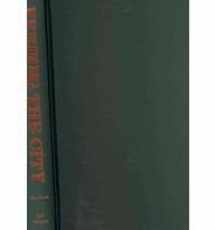
Feeding the City: From Street Market to Liberal Reform in Salvador, Brazil, 1780–1860 (Joe R. and Teresa Lozano Long Series in Latin American and Latino Art and Culture)
ISBN-13:
9780292722996
ISBN-10:
0292722990
Author:
Richard Graham
Publication date:
2010
Publisher:
University of Texas Press
Format:
Hardcover
352 pages
FREE US shipping
Book details
ISBN-13:
9780292722996
ISBN-10:
0292722990
Author:
Richard Graham
Publication date:
2010
Publisher:
University of Texas Press
Format:
Hardcover
352 pages
Summary
Feeding the City: From Street Market to Liberal Reform in Salvador, Brazil, 1780–1860 (Joe R. and Teresa Lozano Long Series in Latin American and Latino Art and Culture) (ISBN-13: 9780292722996 and ISBN-10: 0292722990), written by authors
Richard Graham, was published by University of Texas Press in 2010.
With an overall rating of 3.9 stars, it's a notable title among other
books. You can easily purchase or rent Feeding the City: From Street Market to Liberal Reform in Salvador, Brazil, 1780–1860 (Joe R. and Teresa Lozano Long Series in Latin American and Latino Art and Culture) (Hardcover) from BooksRun,
along with many other new and used
books
and textbooks.
And, if you're looking to sell your copy, our current buyback offer is $0.56.
Description
Winner, Bolton-Johnson Prize, Conference on Latin American History, 2011Murdo J. McLeod Book Prize, 2011On the eastern coast of Brazil, facing westward across a wide magnificent bay, lies Salvador, a major city in the Americas at the end of the eighteenth century. Those who distributed and sold food, from the poorest street vendors to the most prosperous traders—black and white, male and female, slave and free, Brazilian, Portuguese, and African—were connected in tangled ways to each other and to practically everyone else in the city, and are the subjects of this book. Food traders formed the city's most dynamic social component during the late eighteenth and early nineteenth centuries, constantly negotiating their social place. The boatmen who brought food to the city from across the bay decisively influenced the outcome of the war for Brazilian independence from Portugal by supplying the insurgents and not the colonial army. Richard Graham here shows for the first time that, far from being a city sharply and principally divided into two groups—the rich and powerful or the hapless poor or enslaved—Salvador had a population that included a great many who lived in between and moved up and down.The day-to-day behavior of those engaged in food marketing leads to questions about the government's role in regulating the economy and thus to notions of justice and equity, questions that directly affected both food traders and the wider consuming public. Their voices significantly shaped the debate still going on between those who support economic liberalization and those who resist it.


We would LOVE it if you could help us and other readers by reviewing the book
Book review

Congratulations! We have received your book review.
{user}
{createdAt}
by {truncated_author}


